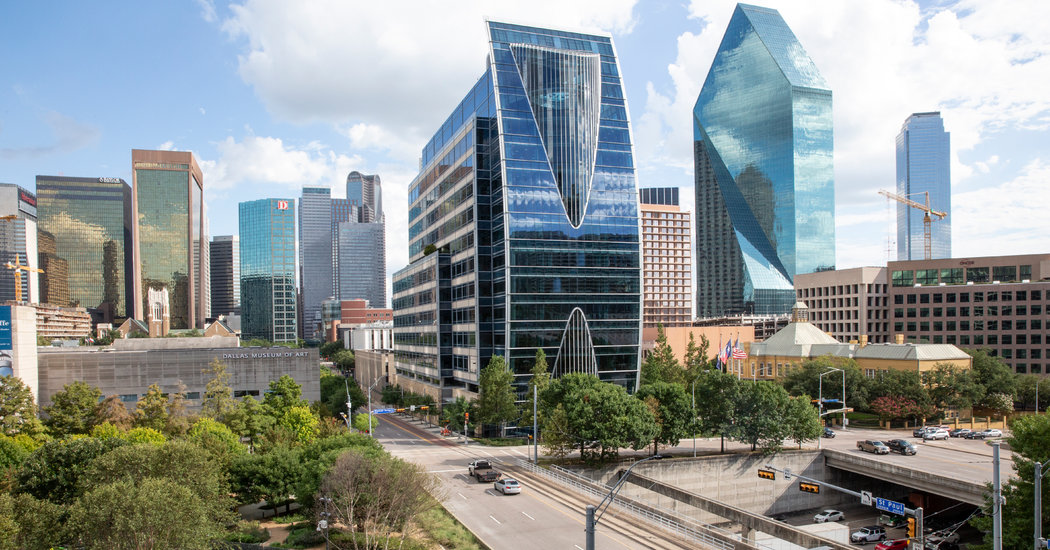
SAN FRANCISCO — Chicago offered $2 billion in tax breaks. North Carolina wrapped buses in Seattle with a pitch for Raleigh. A Philadelphia coffee chain printed the Amazon logo into the foam of its lattes.
Now it may be all for naught.
While Amazon has not officially said so, the technology giant is nearing a deal on where it is expanding next, according to people briefed on the discussions.
After 20 finalist cities went to considerable lengths to lure Amazon to build a second headquarters within their boundaries — from promises of huge tax incentives and land deals to glitzy dinners with the cities’ dignitaries — Amazon appears ready to increase its already sizable presence around New York, two of the people said. The company is also nearing a deal to expand in the suburbs of Washington in Northern Virginia, one of them said.
When officials from most of the 18 other cities were contacted on Tuesday, they were reluctant to answer a simple question: Was all that a waste of time? In fact, many still held out hope that they have a shot.
“We are in the ninth inning of this process with no finalist having scored yet,” said Aisha Glover, who helped lead the pitch from Newark, N.J. “It’s not over until it’s over.”
Ten officials said they were still pursuing Amazon or had not yet heard from the company about a decision, even though media outlets reported that their city was an also-ran. The officials said they wanted to avoid angering the nation’s No. 2 private employer, after Walmart, which could still decide to open an office in their town someday.
The cities had also signed extensive nondisclosure agreements with Amazon. When Maureen Krauss, the chief economic development officer for the Indianapolis Chamber of Commerce, declined to comment, she noted, “I have 37 NDAs in my office.”
Some officials were talking, however, as news leaked out about Amazon’s plans, and company executives did not seem pleased.
“Memo to the genius leaking info about Crystal City, VA as #HQ2 selection. You’re not doing Crystal City, VA any favors,” Mike Grella, a director of economic development and policy at Amazon, tweeted on Saturday. “And stop treating the NDA you signed like a used napkin.”
An Amazon spokesman said Mr. Grella was not involved in the headquarters search. The spokesman also said that the company had added more than 6,000 jobs this year in cities that applied for the headquarters but did not make the list of finalists, and that Amazon expected similar hiring in finalist cities that were not selected.
Officials from the finalist cities spent more than a year compiling thousands of pages of documents, producing slick videos and hosting Amazon officials for tours and dinners at some of their area’s best restaurants. Many proposals included billions of dollars in tax incentives. New Jersey offered $7 billion in tax breaks if Amazon chose Newark. Atlanta’s mayor said the city had offered more incentives to attract Amazon than it did for the Summer Olympics in 1996.
In a 218-page proposal, Boston pitched a recently closed thoroughbred racetrack as a site, as well as mass-transit extensions and an “Amazon task force” of city officials to act as the company’s contacts at City Hall.
The Columbus Dispatch obtained more than 1,300 pages of documents prepared for the Ohio city’s pitch, which detailed “everything from the size of sewer lines on sites it was pitching to detailed hate crime rates in the city.” Columbus also said Amazon would not have to pay property taxes for 15 years.
Toronto did not offer tax incentives but told Amazon that it would save billions of dollars because of Canada’s universal health care, lower cost of labor and lower overall taxes. And Denver pitched a site near its airport and more than $100 million in incentives.
New York’s most recognized landmarks even turned orange for Amazon for a night.
In recent years, the AOL founder Steve Case has toured the country promoting the “rise of the rest,” the idea that the tech boom will eventually spill out into smaller cities in the middle of the country. But in focusing on two coastal megacities, Amazon may have called that narrative into question.
“It actually is deflating that maybe in this environment, there isn’t a lot of opportunity for midsize cities,” said Amy Liu, director of the Metropolitan Policy Program at the Brookings Institution.
Mark Zandi, chief economist for Moody’s Analytics, said Amazon’s choice showed that big tech companies still cared more about talent pools than costs.
“The kind of people you’re trying to attract are very diverse and globally oriented,” Mr. Zandi said. “That’s a very difficult thing to find in a place like Indianapolis.”
Local media from the left-out cities on Tuesday analyzed what losing meant for their hometowns. “Even if Amazon played us, Dallas can learn from the HQ2 search” was the headline of a Dallas Morning News editorial that said the city was better off with broad-based growth, which “is more stable than being a one-horse town.”
The Boston Globe columnist Scott Kirsner made the case that “being stiffed by Amazon is a good thing.” He wrote that the company could have sucked up much of the city’s talent and “is one of the most insular, secretive and uncharitable companies I’ve ever encountered.”
Many cities also enlisted their top elected officials, business leaders and athletes to assist in their bids. Todd Carmichael, chief executive of Philadelphia-based La Colombe Coffee Roasters, aided his city’s lobbying and said it was all worth it.
“We swung at the ball and we didn’t necessarily knock it out of the park, but it was great to have that opportunity,” he said in an interview. “And I’ll never visit those cities ever again.”
